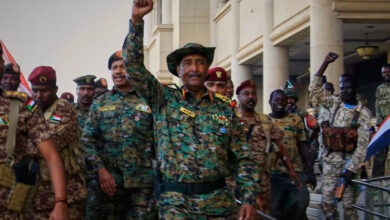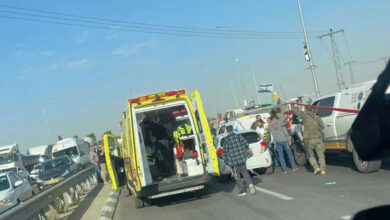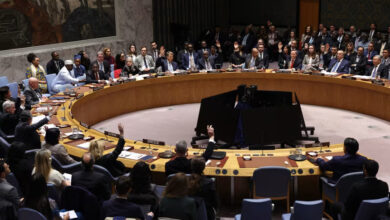Khartoum — North and South Sudan have agreed to start withdrawing unauthorized troops from the flashpoint Abyei border region, the United Nations has said, a week after clashes there left 14 people dead.
The two sides agreed that the pullout would begin from Tuesday and be completed within a week, the UN Mission in Sudan (UNMIS) said in a statement late on Sunday.
The decision was taken at a meeting of a joint committee, comprising representatives of the north and the south and chaired by UNMIS Force Commander Major General Moses Obi, the statement said.
"The meeting agreed that both parties will create a conducive environment by de-escalating tensions and speaking to their respective communities on the ground regarding the implementation of the Kadugli agreements, and ensuring freedom of access for UNMIS," the peacekeeping mission added.
A peace accord signed by the two sides in the South Kordofan state capital Kadugli in January called on all forces to withdraw from the bitterly disputed region except the special Joint Integrated Units (JIUs) of northern and southern personnel, both army and police, alongside UN peacekeepers.
North and south have repeatedly accused each other of sending large numbers of "irregular" soldiers into Abyei, in breach of the January truce.
The United Nations was not able to give estimates on the number of unauthorized troops in the area, but says the two armies have been reinforcing their positions in and around Abyei in recent months.
The JIUs will remain there, charged with ensuring the region's security.
It is not the first time that north and south Sudan have committed to implementing the Kadugli agreements, and the International Crisis Group sounded a note of warning shortly after the UN announcement, saying the Abyei conflict had reached a tipping point.
Escalating tensions on the ground and between the leaders in Khartoum and Juba, who have both made unilateral claims over Abyei, endanger Sudan's fragile peace and the smooth secession of the south, the Brussels-based think tank said.
"Further escalation and additional tit-for-tat deployments risk pushing Abyei beyond the tipping point, endangering lives and the fragile peace in Sudan," it added.
The ICG warning comes a week after 14 people were killed at a security checkpoint just 17km (10 miles) north of Abyei town when fighting broke out between southern police forces and northern elements within the JIUs deployed there.
The police had obstructed a convoy of 200 troops and six landcruisers mounted with machine guns — that officials in Khartoum said was an authorized weapons shipment but which Abyei's southern-appointed chief administrator described as an "invasion."
The International Crisis Group described the JIUs as a largely failed provision of the 2005 north-south peace accord that had performed poorly, had previously been involved in large-scale clashes and were characterised by mistrust.
Abyei's future status is the most sensitive of a raft of issues that north and south Sudan are struggling to reach agreement on ahead of the south's full independence, due to take place in exactly two months time.
Deadly fighting and recriminations have flared since January, when the region had been due to vote on whether to join the north or the south, alongside a referendum in the south that delivered a landslide for secession.
But the plebiscite was postponed indefinitely amid deadlock between north and south over who should be eligible to vote.




